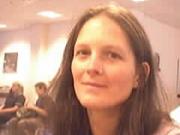The sleeping beauty of professionalism in FE

When I was invited to write an article for FE News, I accepted immediately, but then I was left in a quandary as to what to focus on as there is so much going on in FE at the moment that threatens its very core.
There are 26% cuts to adult funding; voluntarism in initial teacher education since deregulation; the appropriation of CPD for Ofsted-driven priorities rather than personal professional development of dual professionalism; increased bureaucratic workloads; constant policy top-down churn; high stakes target-driven performativity; increased feelings of insecurity and disillusionment amongst teachers and I could go on with the array of poisons that have tried to dose and isolate the sleeping beauty of FE professionalism since 2012.
However, what I have decided to focus on is teacher research. My inspiration for this came from a current group of students I am working with on the new Diploma in Education and Training. Part of the programme is an action research project which gives them an opportunity to focus on a subject specific and/or practice related issue and then implement an action research process to investigate and resolve the identified issue.
Part of my inspiration came from the varied and topical issues that were identified by the students, but following a recent lesson where they had the opportunity to disseminate their finalised research topics and research proposals, the transformative effect that this has had on the students is tangible. Here we have a group of students who are close to becoming qualified FE teachers, and they are engaged in significant pieces of critical action research on areas such as current issues around teaching maths and English to 16-18 year olds; employability; working with deaf learners; Functional Skills as a stepping stone to GCSE; HE in FE;14-16 provision.
The breadth of topics highlights the rich patchwork of practice which constitutes professionalism in FE. The action research process has transformed who they are teachers and energised their critical engagement in their practice.
Not only have these areas of research piqued the interest of other colleagues at the college, and some of the ideas may be adopted as college-wide processes, especially the projects around motivation for maths and English, but this opportunity for carrying out action research has engaged these students critically in their professional practice whilst also raising their awareness of the wider socio-political context of the FE sector. This has reaffirmed my long-held belief that promoting an ethos of teacher research in FE is long overdue and in the current situation is urgently necessary. Engaging in research on our own practice, in our own contexts, develops a collaborative atmosphere and advances the status of our profession.
FE is a complex sector, one that is misunderstood and underrepresented in the wider socio-political landscape. In this way, I see that our sleeping beauty of professionalism has kept one eye open all this while, and has not succumbed to the contagions that have tried to comatose our profession. When teachers engage in research that explores and seeks to understand their practice, it problematises their practice, challenges the status quo and seeks alternative possibilities. It empowers teachers and supports a democratic professionalism, where teachers have a voice.
Teaching is a political endeavour, political because it involves beliefs, values and ideological views on the purpose of education. We have succumbed to a torrent of policy in recent years, policy that has changed working practices almost beyond recognition, we have averted many funding crises which often affect the most vulnerable of our learners, and we see a profession that needs to be heard from those above, the only way for us to bring about change is for us to engage in grass roots action, action that brings about the changes that truly benefit our learners, whilst also reinstating our professional recognition amongst those who denigrate us, our learners and what we do.
Teacher research fosters a ‘critical community of professionals committed to an examination of the teaching profession and the circumstances within which it carries out its task’ (Carr and Kemmis, 1986:44). It empowers teachers to stand tall on the ramparts of audit and policy and bring about educational change within our own contexts, and sector, which positions our professionalism in a more democratic landscape.
I think that the idea that a professional body such as the ETF will be our handsome prince and awake the sleeping beauty of our professionalism is a fairy tale; sleeping beauty needs to wake up, wake up now, needs to be proactive and be its own champion. When teachers engage critically and collaboratively in their practice, the sky’s the limit and this is where our strength lies as a sector, in a community of dancing princesses.
Sasha Pleasance, a teacher educator and founding member of Tutor Voices
Reference: Carr, W. and Kemmis, S. (1986) Becoming Critical. London: FalmerPress






Responses